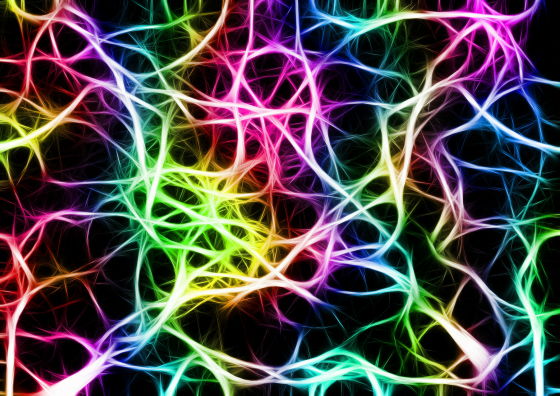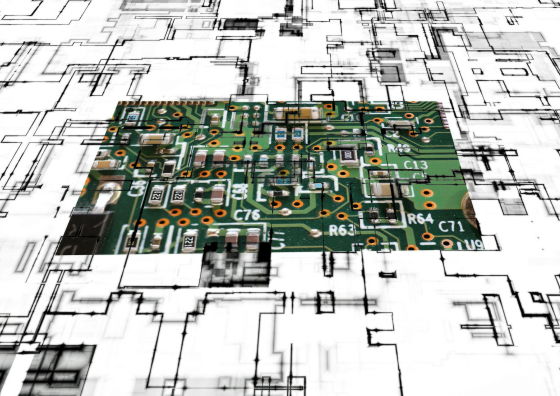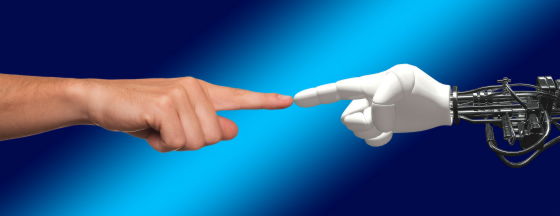A summary of common 'misunderstandings' about AI (artificial intelligence) and their answers

In recent years, rapidly evolving
Q & A: The future of artificial intelligence
http://people.eecs.berkeley.edu/~russell/temp/q-and-a.html
◆ What is AI?
AI is a general term for methods that give intelligence to computers. Roughly speaking, to be able to distinguish between 'good' and 'bad'. The 'good thing' here is to take the most probable action to reach the goal (purpose), and the application fields include reasoning, learning, planning, perception, language, robot technology, etc. Will be.
・ General misunderstanding: 'AI is a specific technology'
As mentioned above, AI is a general term for 'research to make computers intelligent', so this is an error equivalent to thinking of 'physics' as a 'steam engine'.
◆ What benefits does AI bring to human society?
All civilization's tools are the product of human intelligence. And the purpose of all civilizations was to expand human abilities. AI also extends the human ability of intelligence, and as long as it is properly designed, it will enhance our understanding of human values.

・ General misunderstanding: 'AI is inhuman'
In malicious scenarios, it's easy to think that AI is used the wrong way, resulting in more robotization, surveillance, and even justice created by AI, creating a controlled economy. But AI is a powerful way to extend human intelligence, and as long as it's properly designed, it can deliver far greater value. For example, a situation where people who use different languages can communicate in real time using AI seems to be very human.
・ General misconception: 'AI promotes inequality'
It is certainly possible that wealth will be concentrated in a small number of people as work automation increases. However, it is possible to choose how to use AI, which has the advantage of activating collaboration between individuals and small groups, and eliminating the need to seek jobs from large companies.
◆ What is
Machine learning is one of the AI technologies that explores ways to improve the performance of computers based on experience.
A common misconception: 'Machine learning is a new field to replace AI.'
Machine learning is an AI technology that improves performance and does not replace AI technology. Machine learning has always been a central technology in AI research since Turing published his dissertation in 1950, and is one of the technologies studied by AI.
A common misconception: 'Machines can't learn, they just do what they're told.'
Simply put, programmers can instruct machines to learn. Many AI applications are built using machine learning that handles large amounts of data.
◆ What is a neural network?
A neural network is a computer system designed based on the characteristics of neurons in the brain. A neural network is made up of many units, each receiving an input and sending an output. The output takes the form of a weighted sum of the inputs, and the key is that the weight of the links connecting the units is modified by experience.

・ General misconception: 'Neural networks are a new kind of computer'
A neural network is a computational system modeled after the neurons of the human brain, and the neural network itself is implemented on a general-purpose computer.
・ General misconception: 'Neural networks work like the brain'
In fact, neurons in the brain are not as simple as the units used in AI neural networks. There are many types of neurons in the brain, and their connections change over time.
◆ What is
Deep learning is a special machine learning that uses a neural network with a multi-layered structure. Deep learning is a technology that has become famous all at once in recent years as a very important technology for image recognition and voice recognition.
A common misconception: 'Deep learning is a new technology that replaces machine learning.'
Since deep learning is a type of machine learning, it is a mistake to think of deep learning and machine learning as different things. Deep learning itself has existed for over 20 years, but it has made great technological advances in recent years due to improvements in algorithms and models and the ability to collect large amounts of data.
◆ What are 'strong AI' and 'weak AI'?
The expressions 'strong AI' and 'weak AI' were used by John Searle to explain the two AI hypotheses. Originally, 'weak AI' was used in the hypothesis that 'human-level intelligence can be programmed.' On the other hand, 'strong AI' was used on the hypothesis that machines can think and understand like humans.
・ General misunderstanding: 'Strong AI is to realize AI that can do everything at the human level.'
Weak AI is generally understood to be specific, and strong AI is AI that can do everything at the human level, but it is different from what Saar first defined in 1980.
◆ What is 'Moore's Law'?
Moore's Law is a future prediction based on the empirical rule that the integration density of semiconductors grows exponentially. It is simplified as 'semiconductor integration density doubles every 18 months.'

・ General misunderstanding: 'Moore's law is a physical law'
Moore's Law is a prediction that comes from experience with technological advances. No one knows if this will continue and it will not last forever.
A common misconception: 'Computers are already fast enough, and developing efficient algorithms is wasteful.'
In fact, improving the algorithm is much more important than improving the hardware.
◆ What is IQ (Intelligence Quotient) of a machine?
There is no such thing as IQ in a machine. Even if a person who can perform multiple tasks has IQ, IQ cannot be assumed for a machine specialized in a field. Even a computer that beats a chess champion cannot win in other games such as Othello. Computers that can win quiz competitions can't even answer the simple question, 'What's your name?'
A common misconception: 'According to Moore's Law, machine IQ continues to rise.'
The machine has no IQ. Also, Moore's Law has nothing to do with the existence of algorithms that can handle any task.
◆ What can AI systems do now?
The range of tasks a machine can perform is much wider than it was a few years ago. Not only playing board games and card games and answering simple questions, but also extracting facts from news articles, assembling complex objects, translating one language into another, recognizing voice. You can determine the type of image, drive a car, and so on. Many of the search engine features are also AI-powered.
A common misconception: 'A'task'like playing chess is the same for humans and machines.'
Humans learn by seeing and listening to how to play chess, but chess programs do not have this ability. The algorithm of how the pieces move is directly programmed, and the computer does not know the rules of chess as humans know.
◆ What impact will AI have on human society in the near future?
Some innovations may emerge in the near future. A typical example is an autonomous vehicle. We can anticipate the emergence of robots that work in the fields of agriculture and elderly care, and the evolution of smartphone personal assistant functions. Furthermore, AI that can handle a large amount of complicated information is expected to be used in the scientific field.
・ General misconception: 'Robots are trying to take away the role of humans'
Most of the progress in the AI field has made computers and robots convenient, and the progress has been made little by little. However, from a long-term perspective, human control becomes important.
◆ Will the evolution of AI and robots rob humans of their jobs?
As the evolution of AI and robots continues, it is inevitable that many professions will be affected. This does not mean a large amount of unemployment immediately, but may lead to changes in the economic structure. And it may demand a new way of thinking about the way work and rewards are.

・ General misconception: 'All work done by robots reduces human work'
Work is not zero sum. With the help of robots, you can be more productive and robots can create new demand. It is possible that a job would not be economically viable without a robot. It's like using a brush or spray to repaint a house, but you can't get it to completion with a drop of ink.
◆ Why did people suddenly become worried about AI?
Since 2014, celebrities such as Stephen Hawking, Elon Musk, Steve Wozniak, and Bill Gates have regularly reported that they are 'concerned about AI.' Another reason is the fact that advances in AI technology appear to be accelerating. Various AI technologies are combined there, and the results performed in the laboratory reach the level of solving real-world problems, increasing investment in research and progressing as research progresses. It seems that there are multiple factors such as acceleration.
・ General misconception: 'The birth of superintelligent AI, which has intelligence that exceeds human intelligence, is just around the corner.'
Very few researchers, if any, believe that superintelligent AI is about to be born. However, this does not mean that we do not take the advent of superintelligent AI seriously. If a meteorite that collides with the Earth is found within 50 years, no one should say, 'Let's pay attention after 5 years.'
◆ What is the AI community doing against possible AI risks?
Despite the negative reactions of most AI researchers, much of the debate about the existential risks of AI is off the subject of the AI community. But more recently, Elon Musk has funded $ 10 million to support research in this area, and Eric Holbitz has long-term research that will lead to policy recommendations. We are engaged in activities such as investing in. And AAAI has set up a standing committee to deal with 'AI Impact and Ethical Challenges.'
A common misconception: 'It's impossible to control AI research.'
Some people think that there is no way to avoid a bad future from AI, as research progress is unstoppable and unregulated. But this claim is wrong. For example, the Asilomar Conference in 1975, which gave time to reach a conclusion, succeeded in setting an international norm for subsequent genetic recombination technology. If research to achieve human-level AI is done unchecked, research on methods to ensure that AI systems are still under human control will become even more important.
Related Posts:







